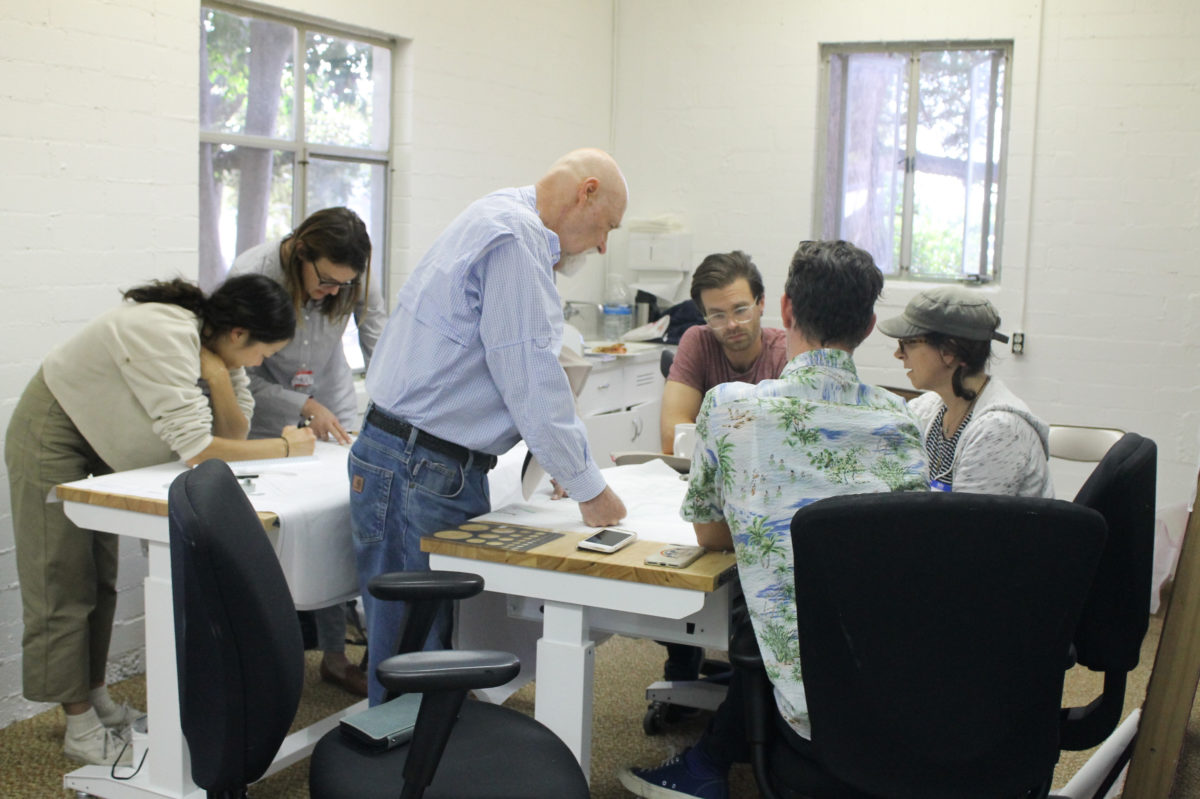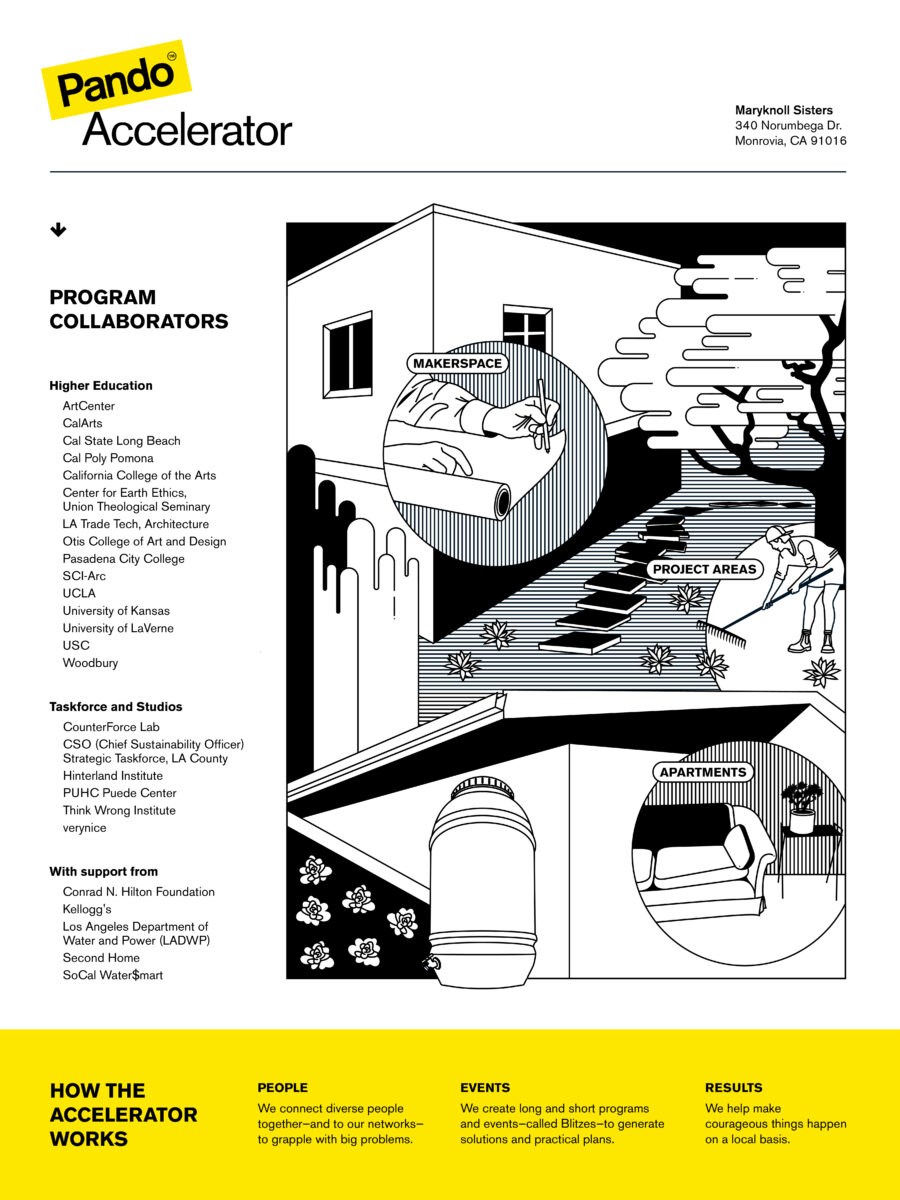“You can never change things by fighting the existing reality. To change something, build a new model…”
– Buckminster Fuller
The Pando Accelerator is our engine for brainstorming, planning, and prototyping a thriving future. We start with a vision of community resilience that integrates society and environment as an interconnected whole. Pull together the most diverse, creative, and committed teams we can find. Then generate breakthrough ideas with an ingenious workshop experience we call a Blitz, pioneered by legendary designer John Bielenberg.
Post-Blitz, we support networking, coaching and strategic planning in order to help the best ideas see the light of day. We involve creators, designers, TV producers/writers, entrepreneurs, and others – people who know how to bring visions to life and get the most out of both sides of their brains.
We’re launching dozens of social and environmental impact initiatives through our acceleration process. Pando Days extends our model to ten Southland colleges and universities, focusing their talents collectively on creating new initiatives and campaigns for the common good of the County.

Pando at Maryknoll Monrovia
Between the summer of 2018 and beginning of 2021, Pando collaborated with the Maryknoll Sisters in Monrovia to prototype a campus on their 7 ½ acre site that can unite the Sisters’ legacy of social impact in Los Angeles County with the passion of design students, lifelong learners, and others.
The galvanizing idea was to create on the Monrovia compound what we think of as a “residential research park for integral ecology,” by which we mean a demonstration, education, and acceleration site for incarnating the vision. Pando Fellowships, Artist in Residence, and student internship opportunities offered communal working and learning environments.
See what we accomplished during the two-year prototype period, June 2018 to early spring 2020.

We formed the Pandotopia Network to include other communities of women religious in locations across the country to support and extend the model.
We’ve drafted an ontology for integral ecology that details what an Earth- and people-centered commitment on these campuses might mean. It is designed to help with strategic planning, cross-silo collaboration, and impact assessment.